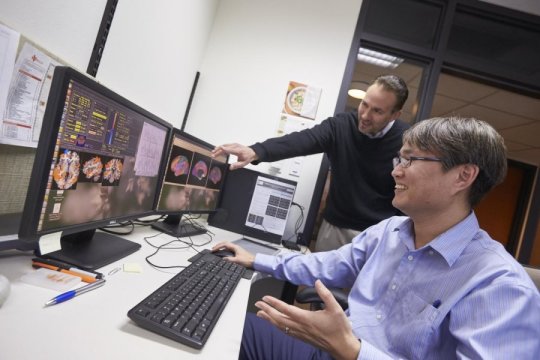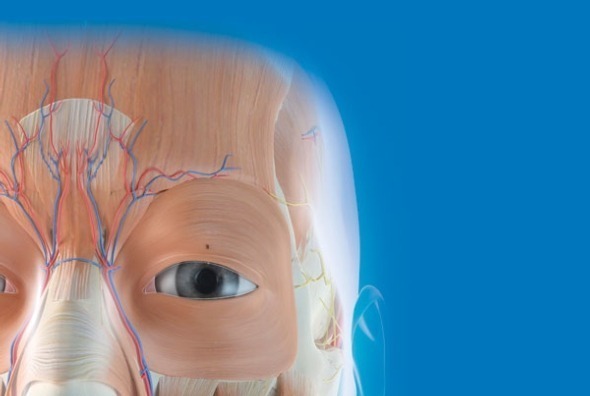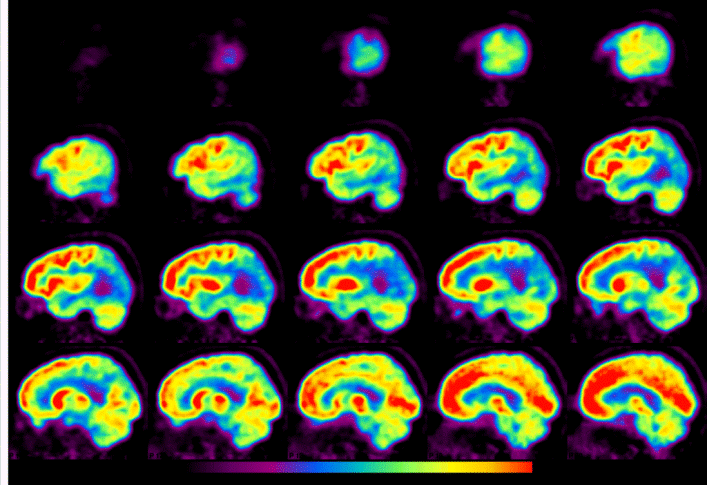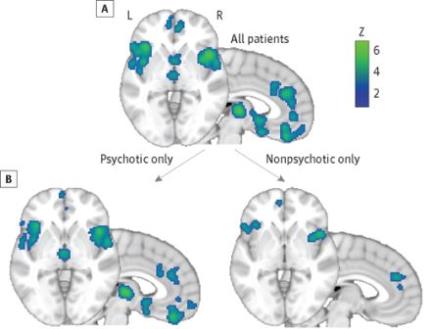Posts Tagged ‘Brain-Imaging’
Forget thinking vs. feeling dichotomy. Think/ feel holistic brain functioning
Mental Math and the Fine-Tuning of Emotions (The Dana Foundation) “You often hear the word “calculating” used to describe someone who always seems to act deliberately, guided by reason rather than emotion. The idea behind this characterization is that human nature straddles a deep divide between thinking and feeling, but current research suggests otherwise. Brain-imaging studies,…
Read MoreUT Dallas researcher secures $2.7m grant to better monitor and address TBI-related cognitive and functional deficits
Scientist Gets Grant for Study of Veterans with Traumatic Brain Injuries (UT Dallas release): A researcher from the Center for BrainHealth at UT Dallas has been awarded a $2.7 million grant from the Department of Defense (DoD) under the Joint Warfighter Medical Research Program. The grant, awarded to Dr. Daniel Krawczyk, deputy director of the…
Read MoreNext: Smell tests to help detect brain injury and neurodegenerative ailments
Smell Tests Could One Day Reveal Head Trauma and Neurodegenerative Disease (Scientific American): “Name that smell—if you can’t, it could be an indicator of a problem somewhere in your brain. New research suggests that scratch-and-sniff smell tests could become
Read MoreSeptember update: Revolutions in neurotechnology will soon influence every aspect of human life
Time for SharpBrains’ September e‑newsletter, wrapping up this month’s key brain-related news. Our brain is at the core of everything we do, from the every-day decisions we make to the epic emotions we feel when we fall in love. And neurotechnologies–especially those that, being digital, are eminently scalable, and that, being non-invasive, pose few if any negative…
Read MoreStudy: Brain imaging not accurate or sensitive enough (yet) to detect Alzheimer’s disease in primary care settings
Accuracy of dementia brain imaging must improve (University of East Anglia release): “A report published today in The Lancet Neurology evaluates for the first time how well different types of brain imaging tests work to detect Alzheimer’s and predict how the disease will progress. The results show that the accuracy of brain imaging must be…
Read MoreQ: What do people with schizophrenia, bipolar disorder, depression, addiction, obsessive-compulsive disorder, and anxiety have in common? A: A brain with similar gray-matter loss
. Different mental disorders cause same brain-matter loss, study finds (press release): “A meta-analysis of 193 brain-imaging studies shows similar gray-matter loss in the brains of people with diagnoses as different as schizophrenia, depression and addiction…The findings call into question a longstanding tendency to distinguish psychiatric disorders chiefly by their symptoms rather than their underlying…
Read More





